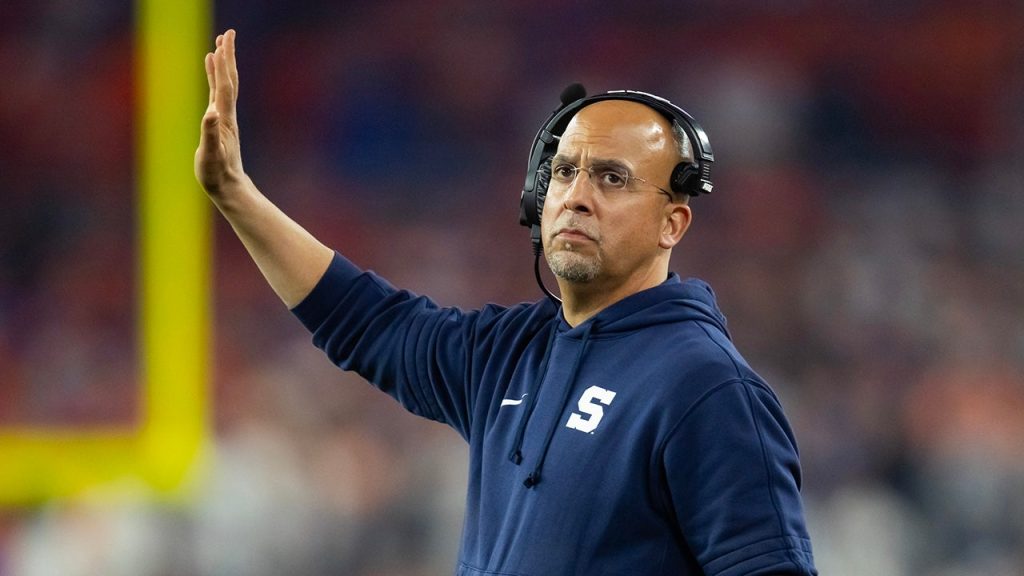James Franklin, head coach of the Penn State Nittany Lions, ignited a debate concerning the structure of college football, particularly focusing on Notre Dame’s independent status, just days before their crucial Orange Bowl clash against the Fighting Irish. Franklin’s core argument centers on the need for consistency in scheduling and conference affiliation, especially in the wake of the College Football Playoff (CFP) expansion. With more teams vying for a coveted playoff spot, the current system, in Franklin’s view, presents an uneven playing field due to the varying number of games played and the presence or absence of conference championship games.
Franklin’s contention stems from the perceived disadvantage faced by teams that play in conferences and participate in conference championship games. These teams, like his own Nittany Lions, play an additional game compared to independent teams like Notre Dame. This extra game, while potentially offering a path to a conference title, also exposes teams to an additional risk of loss, which can negatively impact their playoff ranking. In contrast, independent teams avoid this extra game, potentially preserving their record and playoff hopes. This discrepancy, according to Franklin, creates an unfair scenario when the CFP selection committee evaluates teams with different game counts.
The debate touches upon the broader issue of competitive balance in college football. Franklin argues that for the CFP selection committee to make fair and informed decisions, they need a standardized evaluation metric. The current system, with its variable number of games and conference affiliations, makes it difficult to compare teams directly. This lack of consistency, Franklin asserts, forces the committee to make subjective judgments, which can lead to controversial selections and exclusions, as seen in the first year of the expanded playoff with the omission of teams like Alabama.
Notre Dame’s long-standing tradition of independence adds another layer of complexity to the conversation. The Fighting Irish’s independent status is deeply ingrained in the program’s identity and carries significant historical weight. While acknowledging the pride associated with Notre Dame’s independent status, Franklin maintains that the evolving landscape of college football, particularly with the CFP expansion, necessitates a reevaluation of this tradition. He believes that a consistent structure, with all teams belonging to conferences and playing a uniform number of games, would create a more equitable system for all.
While Notre Dame head coach Marcus Freeman respects the traditions of his program, he also recognizes the pragmatic advantages of their current independent status. The absence of a conference championship game allows Notre Dame to rest and recuperate during a period when conference-affiliated teams are engaged in high-stakes championship contests. This provides Notre Dame with a unique advantage heading into the playoffs, a luxury not afforded to conference-bound teams. Freeman adopts a pragmatic approach, emphasizing his focus on navigating the current system while leaving broader structural decisions to the Notre Dame administration.
The crux of the matter revolves around the fairness and transparency of the CFP selection process. Franklin’s call for consistency aims to establish a level playing field where all teams are evaluated based on the same criteria. He believes this standardization would enhance the integrity of the CFP selection process and eliminate the ambiguity that arises from comparing teams with disparate schedules. While Notre Dame’s independent status holds historical significance, the evolving dynamics of college football, particularly with the CFP expansion, necessitate a renewed examination of the optimal structure for the sport. This debate underscores the ongoing tension between tradition and the need for adaptation in the face of changing circumstances within college football.

